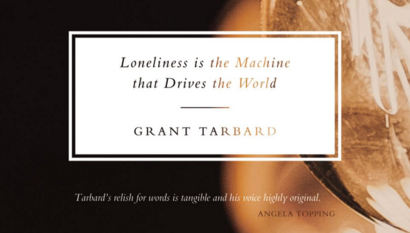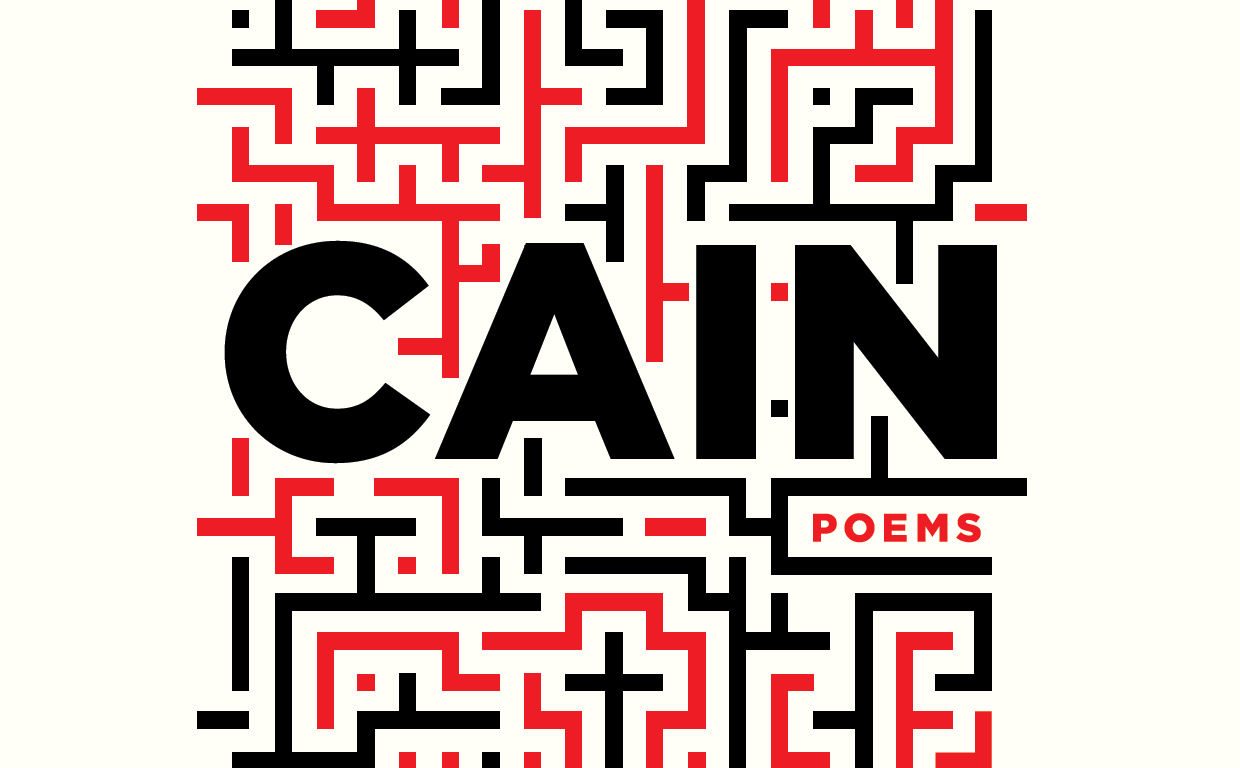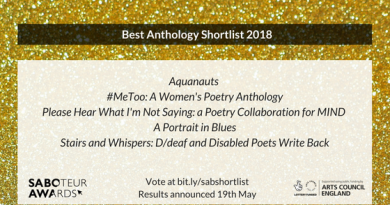Loneliness Is the Machine that Drives the World by Grant Tarbard
– Reviewed by Humphrey Astley –
As this short collection’s title – Loneliness Is the Machine that Drives the World – suggests, Grant Tarbard’s poetry is not for those of a nervous disposition, but his blend of French symbolism, Tom Waits macabre and good old misanthropy will be a breath of intoxicating air for anyone who wishes that fewer poets played it safe. The book opens with ‘Coffee Futures’, which reimagines the brewing ritual as alchemy (Tarbard has a taste for making the everyday strange or sinister). Not being one to ease the reader in or bank on familiarity to get results, he primes the poem’s opening lines with an exotic ‘cezve brass pot buried / in an old man’s beard of charcoal ashes.’
If this is music to your ears, read on, because there’s a lot more where that came from. If, however, you’re hypersensitive to style over substance, you’ll probably wonder what’s going on when, for example, ‘The cup is opened like a peacock’s tail / [and] psalms of brown-eyed, handsome planets gather / in the sphere of your wounds’. As these lines show, Tarbard’s formal interests are more verbal than structural: he paints with words. They’re brush-strokes, not building-blocks, though he occasionally dabbles in traditional forms to salutary effect. Loneliness‘ haiku sequences compress his broad-brush imagery into terse stanzas that can be read as sequential or episodic:
Turner seas in swells,
God is moving furniture,
all is lost it seems.The Sun is a ghost
making shadow puppets
out of burnt arrows.
At the microscopic level, it’s hard to ignore Tarbard’s annoying habit of breaking lines on conjunctions or prepositions. This is a small thing, but small things count in poetry and, while one can understand his preference for saving the action for the beginning of the next line, letting the line in hand dissolve at the end seems too often like a wasted opportunity. For example, ‘the tense thighs of the past and the / silk breast of the future’ – would this not be more effective rendered ‘silk / breast’? That way, ‘silk’ would be held by the line-break in a position between adjective and noun, creating a kind of three-dimensional image. Similarly, ‘a / slow dismantling’ seems a completely counter-intuitive line-break (though poets are under no obligation to obey ‘intuition’).
‘Sage of the Wastes’ shows an interest in Christ or Christ-like figures: the Biblical references are both explicit (‘he ventures to / speak with the sand for forty days and forty nights’) and oblique (‘He journeys to the bruised tree.’). The saviour is a kind of dystopian wanderer who ‘spits / out spiders and crushes them, divining / from their tiny bones a hand in all its / beauty, open’, though it’s unclear whether the world he inhabits is worth saving. In ‘He Did Not Rise’ the approach is pure theology:
How did Jesus die?
On a crucifix,
like a museum
artefact – a wax work
with a crown of thorns?[…]
No, as a man in
wild daylight, that sang
with a crackingchariot of bones,
lost in an empty
sea, blazing with a
cat’s eye in silence –
guiltless as a songof love.
Tarbard’s work is perhaps strongest when he gives the smoke and mirrors a rest and says what he means, as in this poem’s matter-of-fact conclusion that ‘[Jesus] did not rise / in the dust of Adam.’ We can debate the implications of this but there’s no doubt that the poet has given us something concrete to think about. He’s also memorable when he’s funny, which is welcome in the midst of all the grief:
showing what you love
leads to heartbreak, desertion,
and scalded kidneys
The strongest piece in the collection’s first half is probably ‘Into the Woods’, an exquisite, Merwin-esque vignette that bundles family, creativity and identity into a single unrhymed sonnet. The second half is surprising both at the level of the line and in the context of the book as a whole:
I have no answer other than, the world
is wonderful sometimes. He says it is
my duty to repair the damage I’ve
done with beauty – for we are all in the
mirror with you. And so, I drag the body of
my father into the cleansing water.
Again, Tarbard’s line-breaks are frustrating, but when his ideas are this good you’re inclined to let him off. The titular refrain of another sonnet, ‘Go Beyond My Withered Craft’, gives the poem purpose and momentum before shrinking, aptly, into ‘Go beyond my wither’.
The collection’s second half is generally more straightforward than the first, albeit with mixed results. ‘Bag of Bones’ begins with the wonderfully deadpan observation that ‘Your mons Venus / reminds me / of a beetroot’, but ends with the kind of sentiment that would be more at home in a black metal lyric sheet: ‘all I love will rot in the wet loam.’ ‘Ode to My Disability’, meanwhile, gets to the heart of its author’s condition with a self-immolating metaphor:
this echo of an H-bomb burns me from the inside
out, contorting my features, legs in a grimaceto the soil that used to be underfoot,
until the flames consume me and I become invisible.
While only those with a disability know what it’s like to have one, there’s something so universal about ‘I become invisible’ that the effect is less ‘sucks to be me’ than ‘sucks to be human’. The title poem explains and enacts Tarbard’s relationship with his art:
my language, as crude as a stone tool –
a means of escape into the hallucinations
that rampart my Adam’s apple,a door into my throat.
The desire to inhabit one’s own voice is surprisingly Romantic, but when Tarbard gets carried away with the right idea it’s easy to get carried away with him. It’s worth persevering with the doom and gloom for the points when his wordplay works, ‘like a game on a rainy day, / to walk on the yellow grass that’s sealed in a walnut.’ There’s hope in that walnut, believe it or not.





